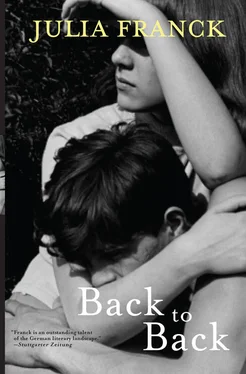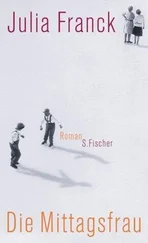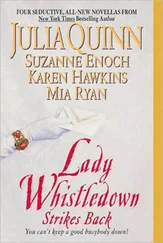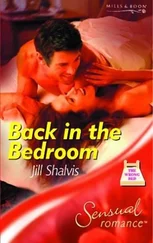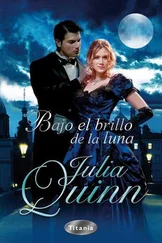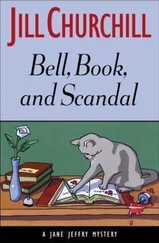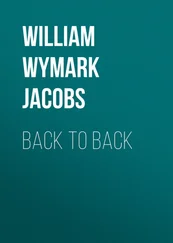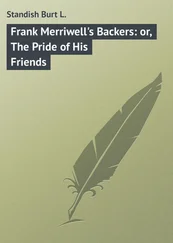Yes, I wanted to get the sugar out of the cupboard, and crash! Now she put both hands side by side on her lap, flat, as if she were praying.
Thomas tried to imagine Marie walking into an open cupboard door. Something like that might happen to him, but not Marie. Her eyes saw everything, they were everywhere, penetrating everything, they saw from a distance and close too, everywhere, he was sure of that. Why was she lying to him?
You don’t believe me, she said quietly. Thomas did not reply. Holding his wine glass, he tipped it slightly, held it straight, and wondered whether he had to take hers off the table and press it into her hand so that she could drink. He leaned forward, took her glass and held it out to her.
Here’s to you!
And you!
He had closed the door of his room, and when he heard footsteps and Agotto’s barking in the corridor he knew that no one would open it, any more than anyone expected him to go out, say hello, or even introduce his guest formally. Käthe wouldn’t even know that he had a guest, they were keeping so quiet.
They sat opposite each other until three in the morning, telling one another what they thought about life, in few sentences with long minutes of silence in between.
For instance, seeing her eye fall on the picture of Walter Ulbricht that had been shot at, Thomas said: He made monkeys of us all. He scratched under his armpits, grasped two invisible bars in the air in front of his face, and pressed his pursed mouth between them. Looks good out there.
Marie cautiously laughed, and moved a little further back into the armchair, placing the arm holding her glass on the arm of the chair while she stroked the smooth fabric of her trousers with her other hand. What sort of dog was it she had heard just now? she asked. Thomas told her about Käthe and her dog, who always got something from her plate at mealtimes, the dog she caressed and tickled under the chin. He had never seen Käthe caress a human being. He poured Marie more wine. With alcohol, wishful dreams, oblivion and tobacco, / And we will hate ourselves with all our might. / Oh child, you need not weep, / We take nothing with us when we go. / We will only walk by night. — / You do not see in the dark when an eye breaks. Marie raised one eyebrow. She liked the black walls of his room: It’s like a cave, you can feel safe in here.
The universe, Thomas drank from his glass, but kept the wine in his mouth and did not swallow it, turned it over gently against his palate. His tongue in the wine. That afternoon Marie had said that the man with the eye oozing pus was going blind in it, and they would have to operate next week. By now he knew what it meant for something to be taken away. The eye would disappear. Now he swallowed the wine. Is there a place where no light comes in any more, a place no one thinks about any more?
The shadow of the moon? She looked attentively at the rug between her and Thomas. The loops of its bouclé fabric looked like moss in the faint light. He had the impression that she was thinking of something else.
Everyone thinks of that. Lunik 2 has even been there. Everyone wants to go to the moon. The silence inside the Wall since it was built round us. Over on the other side, where the order to shoot isn’t in force, do people stand on the Wall shaking our barbed wire? Do you want to get shot?
He soon saw, from the way that Marie was suppressing her yawns, that she was tired and shivering.
He offered her his bed, and when she hesitantly agreed, his quilt too. She took the hairpins out of her piled hair and put them on the chest of drawers one by one, until her hair was falling down over her shoulders. Should he offer her a nightshirt? She sat on his bed and took her shoes off. Thomas plumped up the pillow and put it down for her so that she could sleep comfortably. Tentatively, she laid her head on the pillow, her hands under her cheek, her legs drawn up. Only just audibly her teeth were chattering; she pressed her lips together. Thomas put his quilt firmly round the beautiful, shivering woman. He took the sheepskin off the chest of drawers to cover himself.
He put out the small lamp. It was some time before he could make out her shape, the hollows of her eyes and her delicate mouth. Dark hair framed that pale face, and she was looking at him with tired eyes. He would look at her for a long time, for as long as he could.
When a blackbird struck up its trilling in the faint twilight of dawn, it made him blink. How different Marie looked in the dark, how good it was to be with her. We have to go to work tomorrow — his voice croaked, it was so long since he had spoken.
Afterwards, she whispered back.
Close your eyes, he said, putting out a finger to touch one of her eyelids. The skin there was smooth, warm. He would have liked to touch her cheek, but he didn’t dare. Her slight smile under the closed eyelids infected him. In the midst of the darkness he saw her image and felt, even if he did not hear it, the light touch of her breath on his chin.
My husband likes to drink. And he has friends, colleagues at work. He gets together with them at weekends. He invites them to come and see us. And before my little girl was born, now too when she’s away at weekends I have to dance.
Thomas did not like darkness, he wanted to see her, he wanted to see what she was saying, understand just what she meant. Thomas opened his eyes, but she had spoken with her own eyes closed. Dance?
Take my clothes off and dance.
You have to take your clothes off and dance?
Only at weekends, and when the child isn’t there. She spoke so softly that he could hardly make out the words. He wanted to get closer to her, but the idea that he was lying in front of her, like a reflection, suggested caution.
Just dance?
Sometimes other things too.
Other things?
They give him money for it. It’s amusing.
Amusing? He didn’t understand what Marie was telling him.
He says.
Thomas stared at her, his eyes burning, the dim light hurt, and he wanted to say: Look at me. He wanted to know how she would look at him now. But he couldn’t do it. If she didn’t open her eyes of her own accord he wouldn’t tell her to, wouldn’t try to put an arm round her.
His arms lay stiff beside him, his hands clenched into cold fists, nails digging into the sheepskin. So warm and close, / So warm and close, within reach, / your being lay by mine, / but the great gulf yawns, / Where reason parts us — Was her breath steadier, was she asleep now? He couldn’t ask her, he could only whisper something, the beginning of the poem: Where did love begin, / to stir in the heart again? / Who gave the signal / to reveal the pain? Her breathing was so peaceful that he had to make sure she was asleep.
In the dark, she took his head in her hands, held it, and he wondered, as he pretended to be asleep, whether she also held his thoughts. Perhaps they were both asleep and dreaming.
You’re a handsome boy, she said, putting the fingers that had touched his forehead to her mouth and kissing them, then running them over his cheek.
He felt hot under the sheepskin. The heating was on, he had forgotten to turn it off in the evening and open the window. His eyes felt swollen. Her lips, her fingers, his skin. He felt the blood draining from his hands as they went cold in the turmoil of his mind.
No one can make you dance. The defiance in his words alarmed him. As if he were her husband, as if he could make such decisions.
Perhaps to punish him, perhaps out of shame, she closed her beautiful eyes and kept her hands close to her sides now.
He turned over, lay on his back, helpless as a beetle. Beautiful Marie beside him, untouchably close.
She must have heard his arm on the sheet, smelt the cinnamon and burnt sugar, she opened her eyes. In daylight the blue bruise was yellowish green at the edges. She raised her head, sniffed, and brought her lips close to his hands. With her slender fingers she took a few toasted oat flakes and let them drop into her mouth. She licked her lips.
Читать дальше
